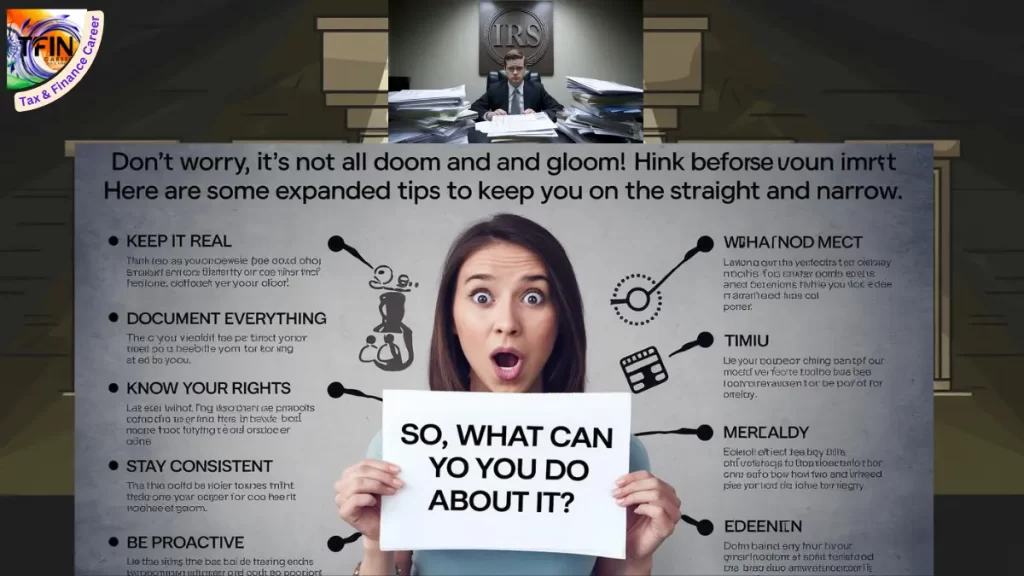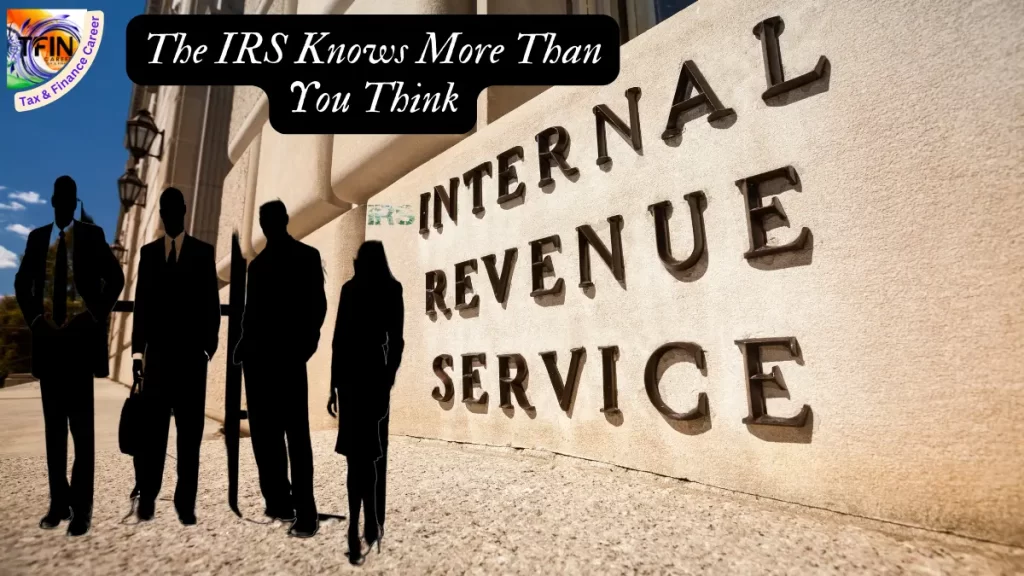The IRS Knows More Than You Think
Hey there, savvy taxpayers! Ready for a wild ride through the labyrinth of IRS knowledge? Buckle up, because we’re about to spill the beans on just how much Uncle Sam’s favorite agency knows about your financial shenanigans. And trust me, it’s more than you might think!
1. IRS Got Your Paperwork Before You Do

Picture this: You’re lounging on the couch, binging your favorite show, when suddenly you remember it’s tax season. Panic sets in as you realize you haven’t received your W-2 yet. Well, guess what? The IRS is already sipping coffee and flipping through your financial dirty laundry.
- W-2 Forms: Your employer has to spill the beans to the IRS by January 31st.
- 1099 Forms: Whether you’re a freelance guru or a stock market wizard, these forms are already in the IRS’s hot little hands.
Early access to financial documents: The IRS receives W-2 and 1099 forms from employers and other income sources before individuals do. This means they often have a good idea of what your tax return should look like before you even file it.
So when you finally sit down to do your taxes, they’ve already got a pretty good idea of what your return should look like. It’s like playing poker when your opponent already knows your hand!
Also Read Tax Evasion Laws: How to Avoid Jail by Mastering Evasion Laws!
2. They Can Dig Deeper Than a Determined Dog After a Bone
Think you can outsmart the IRS by keeping some financial records to yourself? Think again, Sherlock! If they smell something fishy during an audit (and trust me, they’ve got quite the nose for it), they can go straight to the source.
- Bank Records: They can demand info directly from your bank.
- Investment Accounts: Those dividends and stock sales? Yeah, they know about those too.
- PayPal and Other Payment Platforms: Even your side hustle isn’t safe from their prying eyes.
Ability to access non-reported financial records: During an audit, the IRS can request additional financial records directly from banks and other financial institutions if you don’t provide them.
It’s like having a nosy neighbor with a court order – there’s not much you can hide!
3. Your Social Media Could Come Back to Haunt You

Ever heard the phrase “Big Brother is watching”? Well, in this case, Big Brother is scrolling through your Instagram feed and raising an eyebrow at your lavish lifestyle photos.
- Facebook Brags: That humble brag about your new sports car? It better match your reported income!
- Twitter Tirades: Even old tweets can come back to bite you if they contradict your tax claims.
- LinkedIn Lowdown: Your professional profile better not show a job you “forgot” to report income from.
Use of social media: The IRS can look at public social media posts to find discrepancies between reported income and apparent lifestyle.
So maybe think twice before posting about that “small business” that’s secretly raking in millions!
4. Your Emails Aren’t as Private as You Think

Here’s a scary thought – the IRS believes they have the legal right to peek at your private emails, sometimes without even needing a warrant. It’s like they’ve got a skeleton key to your digital life!
Tax scams: What to know, what to do. Know more from the IRS.
- Cloud Storage: Are those “secure” cloud storage solutions? Not so secure from the IRS.
- Anonymous Email Addresses: They’re not as anonymous as you might hope.
- Years-Old Correspondence: Even your ancient emails aren’t safe from scrutiny.
Access to emails: The article mentions that the IRS believes it has the authority to access private emails, sometimes without a warrant.
Those “clever” emails to your accountant about creative bookkeeping? Maybe not such a great idea after all.
5. IRS Got a Pretty Good Idea of What You Should Be Claiming

Here’s a new nugget of info for you: The IRS isn’t just randomly picking numbers out of a hat when they look at your deductions. They’ve got some pretty sophisticated tools up their sleeve.
- Data Analysis: They use fancy algorithms to estimate what your deductions should look like based on your income, job, and past returns.
- Industry Standards: They know what’s normal for people in your line of work.
- Red Flags: If your deductions are way off from what they expect, it’s like waving a red cape in front of a bull.
Estimation of deductions: This new section explains that the IRS uses data analysis tools to estimate what deductions individuals should be claiming based on factors like income level, profession, and past tax returns.
Also Read Tax Strategies of the Wealthy: Insights from a Top Tax Expert
So, What Can You Do About It?

Don’t worry, it’s not all doom and gloom! Here are some expanded tips to keep you on the straight and narrow:
- Keep it real: File honest and accurate tax returns. It’s the best way to avoid an audit and sleep easy at night. Plus, honesty is just way less stressful in the long run.
- Think before you post: Be mindful of what you share online. If it contradicts your tax return, it could spell trouble. Maybe save those yacht pics for after you’ve filed your taxes?
- Document everything: Keep track of your legitimate deductions and expenses. Create a system – whether it’s a fancy app or a good old-fashioned shoebox – to store receipts and documentation.
- Know your rights: Understand what’s public and what’s private. Knowledge is power, especially when it comes to your finances. Don’t be afraid to consult with a tax professional if you’re unsure.
- Stay consistent: Make sure your tax return aligns with your visible lifestyle. If you’re claiming poverty-level income but posting about your collection of designer handbags, something’s gotta give.
- Be proactive: If you realize you’ve made a mistake, it’s better to come clean to the IRS before they come to you. They’re often more lenient with those who voluntarily disclose errors.
- Educate yourself: Tax laws change frequently. Stay informed about deductions you’re eligible for and reporting requirements that apply to you.
The Bottom Line
Remember, at the end of the day, the IRS isn’t out to get you. They’re just doing their job to make sure everyone pays their fair share. By staying honest, organized, and informed, you can keep your finances in check and avoid any unwanted attention from Uncle Sam’s favorite agency.
So go forth, file those taxes with confidence, and maybe think twice before tweeting about your secret offshore account. And hey, if all else fails, there’s always the option of becoming a hermit in the woods with no reportable income. (Just kidding, the IRS probably knows about those hermits too!)
Happy tax season, folks! May your refunds be large and your audits nonexistent!
Hi there! I am Sudip Sengupta, the face behind “Tfin Career”. Tfin Career is a sole proprietorship finance and consulting firm that makes complex tax and financial concepts easy to understand for everyone. With more than 21 years of experience in the field, I have noticed that people cannot make the right decisions in this field. So, I decided to create “Tfin Career” to help individuals and businesses alike. Here I urge those who are confused to make better choices. Also, it is good news for my dear clients and every visitor that I/we are going to start a training module for those who want to choose a career path in Finance and Taxation. Just follow my website.
Thank you for reading this post, don't forget to subscribe!






